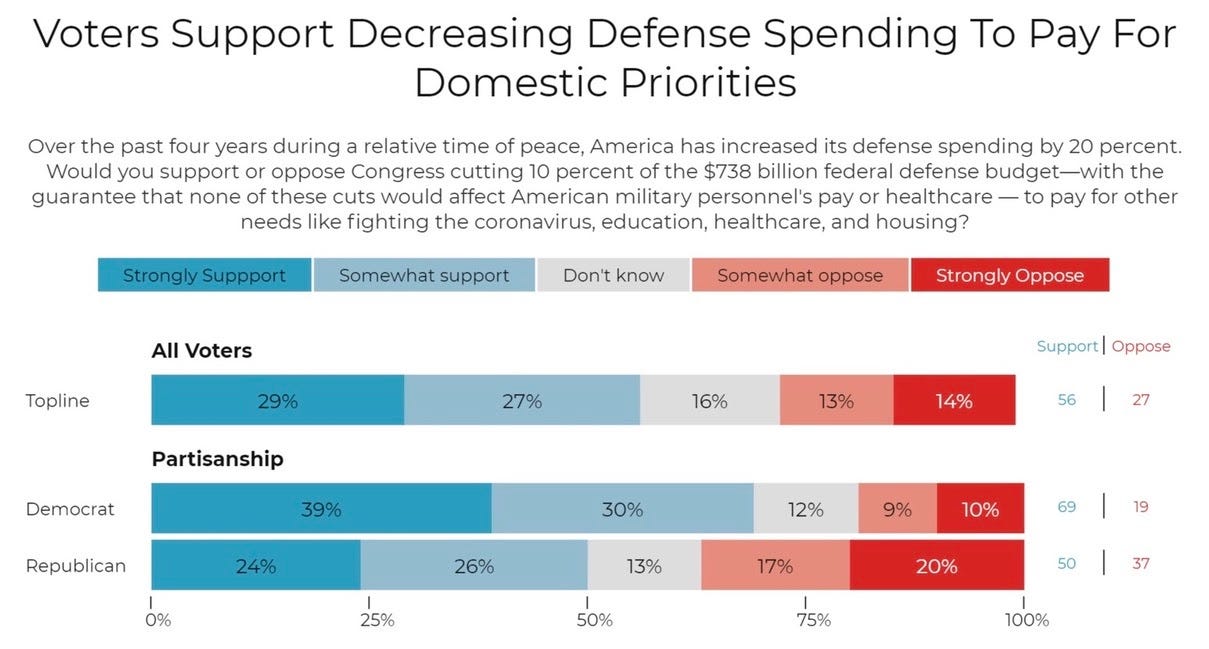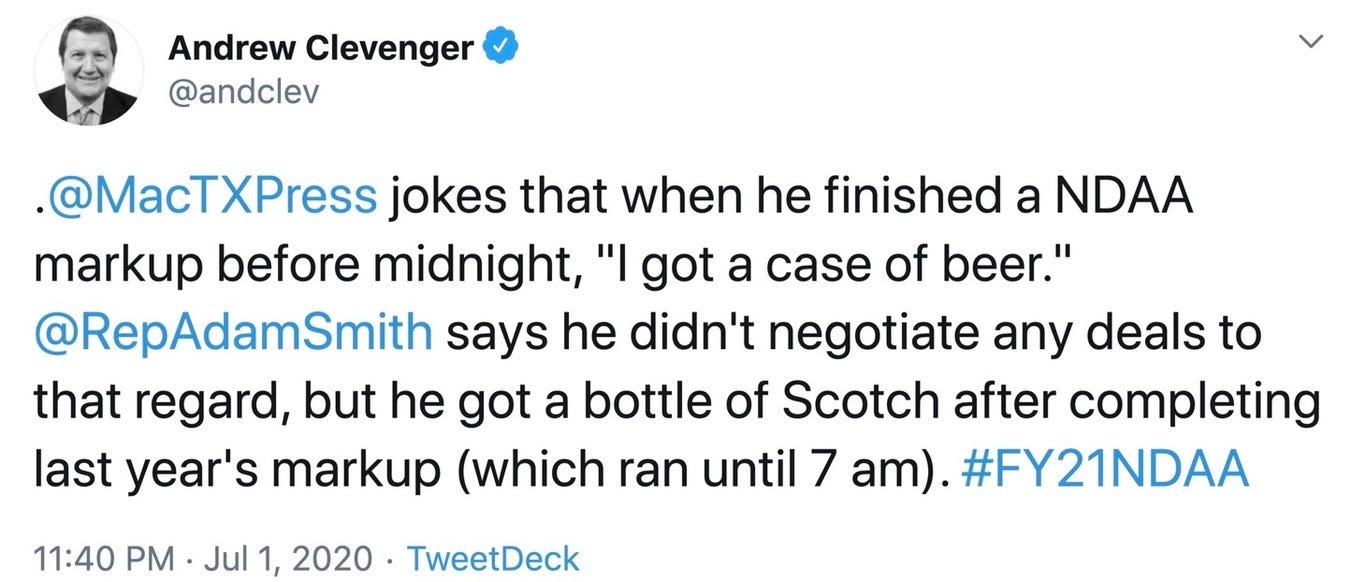Bipartisan problems preclude bipartisan solutions: a brief note on military spending
Speaking Security Newsletter | Advisory Note for Organizers and Candidates, n°30 | 28 July 2020
Military spending is a bipartisan problem, one that speaks more to class hierarchy than partisan divide.
Situation
Prior to last week’s votes, Politico ran dueling op-eds that laid out the liberal and conservative cases for reducing the Pentagon budget. Taken together, the message was that the bipartisan problem of out-of-control military spending could be resolved if members of Congress became reacquainted with the ideological imperatives of their respective parties.
The problem with this type of argument is its irrelevance to the people actually voting on the defense budget. It’s not like members of Congress suddenly forgot their party affiliations when they voted to sustain the brutal status quo last week.
Instead, their votes demonstrated a keen awareness of their own class position: it’s easy to see past ideological differences when, on average, everyone in the room has raked in between $175,913 and $192,281 in defense industry campaign contributions so far in this election cycle (figures refer to Senate Democrats and Republicans, respectively).
A different world
To be sure, the Politico articles referenced above might have some basis in the real world. Here’s how voters reacted to the proposition of reducing DOD spending:

^Source: Data for Progress (full report, here)
By those metrics, we should have gotten ~234 Yes votes in the House on Mark Pocan’s amendment. There were 93. In the Senate, ~56 should have voted for Bernie Sanders’ amendment. There were only 23.
So the glaring flaw of partisan/ideological critiques is that they discount the possibility that the (super)majority of Congress lacks a meaningful connection to the real world, that most these people are so demonstrably out-of-touch that they might as well be living on the fucking moon.
If the votes aren’t enough to convince you of my congressional-lunar-residence argument, the ‘markup period’ of the NDAA was completed by the House Armed Services Committee (HASC) in record time (compared to last year’s marathon session) and was approved of in a unanimous vote among committee members, 56-0 (compared to last year when the HASC barely passed the thing, 33-24)...during a public health crisis.
And can you imagine saying anything close to this afterwards, let alone within earshot of a reporter?

Conclusion
So if this is in fact more about class than partisanship (it is), then the task is to reform either party to be more responsive to working-class (in)security. Personally I think we have a better chance to tear down and remake the Democratic Party (for many reasons, but on a practical level, we already are). That, or we need an entirely new party.
Thanks for your time,
Stephen (@stephensemler; stephen@securityreform.org)
If you found this useful, please consider supporting my grassroots-funded foreign policy think tank, SPRI, if you can spare a few dollars per month. Thank you!



